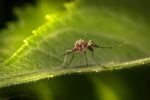The Increasing Threat of Dengue in South Florida Raises Concern
Background
Background
Florida health officials have recently issued a warning about the rise in dengue cases in South Florida. Four locally acquired cases were reported in Miami-Dade County, and for the first time, Broward County has also reported cases. This comes after several cases of locally acquired malaria were reported, marking the first occurrence since 2003.
The Spread of Dengue
The dengue virus is primarily spread through the bites of infected Aedes species mosquitoes, which are also responsible for transmitting Zika and chikungunya viruses. These mosquitoes are found predominantly in tropical and subtropical regions. Dengue is not normally present in Florida but can be brought back by infected travelers who are then bitten by local mosquitoes.
Symptoms and Treatment
Dengue can be caused by any of the four strains of the virus, and individuals can be infected multiple times throughout their lives. Symptoms of dengue infection include fever, rash, nausea, vomiting, and muscle and joint pain. These symptoms can last for up to seven days and are often mild, leading to confusion with other illnesses. There are no specific treatments for dengue, with management mainly focusing on symptom relief, such as rest, hydration, and acetaminophen. It is advised to avoid aspirin or ibuprofen as they can trigger gastritis or bleeding.
Potential Complications
While most dengue cases are mild, about one in 20 individuals can develop severe dengue, which can lead to shock, internal bleeding, and in some cases, death. However, it is important to note that deaths from dengue are rare.
The Growing Threat and Historical Perspective
Between 2010 and 2022, there have been over 33,000 locally acquired cases of dengue in the United States. However, since 2014, the number of cases per year has remained below 1,000. The recent surge in cases reaching the four-digit mark indicates an alarming trend. This increase raises concerns about the potential for a larger outbreak and underscores the need for proactive measures to prevent the spread of the virus.
Prevention Measures
To reduce the risk of mosquito-borne diseases like dengue, Florida health officials recommend the following precautions:
- Drain, empty, and clean any containers that collect water, as mosquitoes lay eggs in standing water.
- Cover up exposed skin when outdoors.
- Use mosquito repellent, especially during dawn and dusk when mosquitoes are most active.
These preventive measures are crucial for individuals and communities to minimize the transmission of the virus and protect public health.
Editorial: Tackling Dengue Requires Collaborative Efforts
A Call for Collaboration
The recent increase in dengue cases in South Florida serves as a reminder of the ongoing challenges posed by mosquito-borne diseases. The threat extends beyond Florida and is a global concern, given the ease of international travel and the changing climate patterns that expand the geographic range of these diseases. It is essential for governments, health agencies, and communities to work together and implement comprehensive strategies to combat mosquito-borne illnesses.
Enhancing Surveillance and Research
To effectively address the threat posed by dengue, a robust surveillance system is vital. By closely monitoring cases and identifying hotspots, authorities can promptly implement targeted interventions to control the spread of the virus. Furthermore, continuous research is necessary to understand the factors contributing to the emergence and transmission of dengue. This knowledge will enable the development of more effective prevention and control measures.
Investing in Mosquito Control Programs
Mosquito control programs play a crucial role in preventing and mitigating the impact of dengue. Governments should prioritize investments in these programs, which encompass proactive measures such as mosquito population monitoring, larval control, and public education campaigns. By focusing on vector control, communities can significantly reduce the risk of outbreaks and the burden on healthcare systems.
Public Awareness and Personal Responsibility
Individuals have a role to play in preventing the spread of dengue. By prioritizing personal protection measures such as using insect repellents, wearing protective clothing, and eliminating mosquito breeding sites, individuals can contribute to mitigating the risk. Public awareness campaigns should emphasize the importance of these actions and educate communities on the symptoms, transmission, and prevention of dengue.
Conclusion: Addressing Dengue as a Collective Effort
As the threat of dengue continues to rise in South Florida, it is crucial for authorities, healthcare professionals, and individuals to come together and address the challenge collectively. The recent surge in cases highlights the importance of proactive measures and investments in surveillance, research, and mosquito control programs. Additionally, public awareness and personal responsibility are key to minimizing the transmission of the virus. By working together, we can mitigate the impact of dengue and protect public health both in Florida and beyond.

<< photo by Kristaps Ungurs >>
The image is for illustrative purposes only and does not depict the actual situation.
You might want to read !
- “Dengue Fever Surges in Florida: Understanding the Virus Spread and Prevention Strategies”
- Pandemic Puzzles: Unraveling the Surge of Dengue Fever in Florida
- “Unveiling the Real Story: Assessing Michael Oher’s Alleged ‘Shakedown’ Attempt”
- “The Tuohy Family’s Rebuttal: Unveiling the Truth Behind Michael Oher’s Allegations”
- “Disrespectful Devotion: Tourist’s Reckless Act Highlights Cultural Insensitivity at Rome’s Trevi Fountain”
- Tourist or Vandal? The Ethics of Collecting Souvenirs from Iconic Landmarks
- Snapchat’s AI Takes Over: The Unpredictable Rise of My AI Stories




